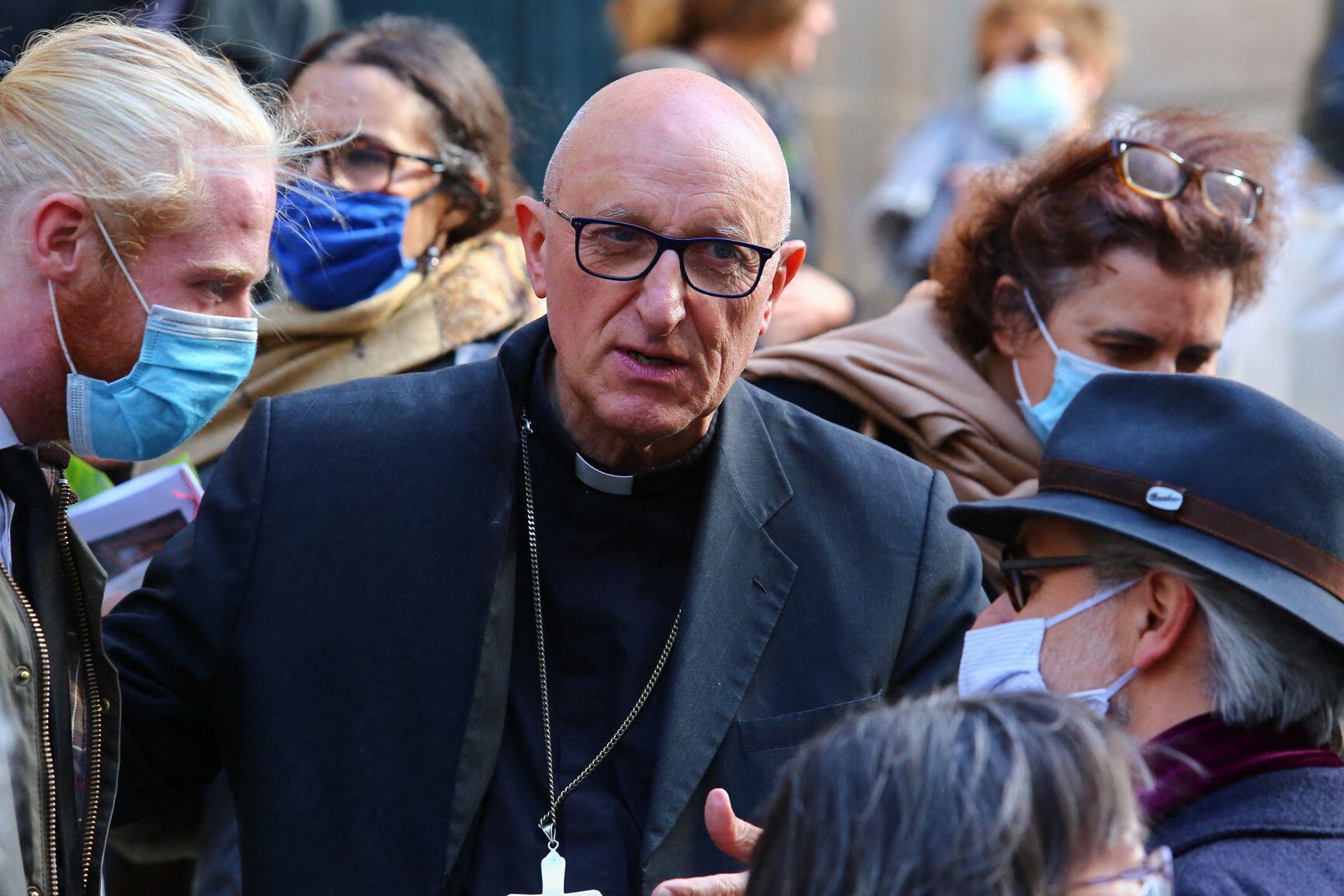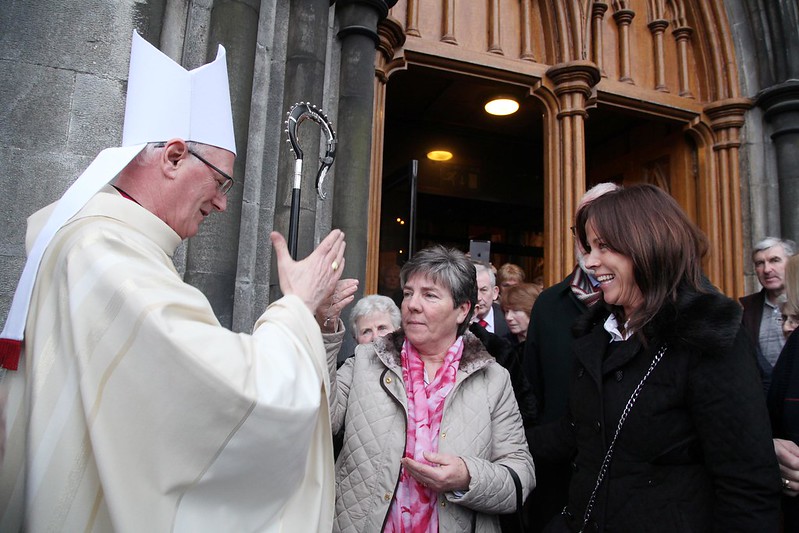Archbishop of Dublin Dermot Farrell has pledged to respond “positively and swiftly” to new proposals put forward by his parishes to deal with the shortage of priests.
In his homily for the Feast of St Kevin, a patron of Dublin, Archbishop Farrell acknowledged that his diocese, the largest in Ireland, is facing “great challenges”.
“We face a particular challenge of the shortage of priests to minister to our parish communities — communities which themselves are very different from even one generation ago,” he said.
At Mass in Dublin’s Pro Cathedral, he said that as bishop of the diocese, it was his strong conviction that “we are not called to be passive in the face of changes which imperil the three-fold mission with which we have been entrusted, but together to shape our future in the light of the gospel”.
He pledged to respond positively and swiftly to the proposals he receives from parish communities on how to organise themselves more effectively and renew themselves for the Church’s mission including responding to the cry of the poor and the cry of the earth.
Archbishop Farrell announced that he is putting in place formation programmes to support those who are willing to undertake leadership and ministry in new ways, working alongside our priests and deacons in the pastoral leadership of our parishes.
He invited women and men who feel called to ministry to train as lectors, acolytes or catechists.
These lay ministers are publicly recognised by the Church and appointed by the diocese to minister alongside priests and deacons in leading liturgies, supporting adult faith formation, and accompanying families preparing for the sacraments.
He also pledged to appoint pastoral leaders – deacons, religious and lay people – where necessary when parishes cannot have a resident priest, to support the priest who will have pastoral responsibility for that parish. This voluntary service will be supported by the pastoral workers in the diocese.
“It is my pastoral responsibility, as bishop, to do this – for the sake of the gospel, and for the sake of the People of God. Christ brought his disciples along a new way. He calls us to find a new way in our time.”
Referring to the consultation across the diocese about renewal in light of the recommendations made by the ‘Building Hope Task Force’, Archbishop Farrell highlighted that one of the clearest messages received in the consultation was the need for “bold decisions that would liberate energies to do what the Spirit is calling us to do – the Spirit that makes all things new”.
He said his call to the diocesan family was to embrace what Pope Francis calls Christian risk.
“It is a call to ensure that the way the Church is organised, our structures or our pastoral certainties, do not restrict our mission in the twenty-first century.
“To do so would be to impose the old solutions on new problems, that is, to use second-hand solutions, which appear tried and tested, but which in the end are tired and superficial.”
Quoting the Welsh poet, RS Thomas, he warned that a sticking plaster approach to the present pastoral reality was a “hankering after an imagined past”. He added, “It is a refusal to accept where we truly are pastorally.”
While that might be more comfortable, and would seem safer, to cling to structures inherited from the past was, in fact, “a crisis of faith that besets our Church”.
Instead, he suggested that what was needed was a new paradigm of parish, one less tied to rigid boundaries.
“For this new model of parish to emerge we have to accept that the structures as we know them are no longer fit for purpose.” He added that accepting the need for transformation would allow the Church to recognise new pastoral possibilities.
Referring to the popular mantra of young people on climate change, that there is no Planet B, Archbishop Farrell stressed: “We might say the same about the Church: there is no Church B.
“In our rapidly changing world, and our profoundly changed pastoral situation, it is vital that we look anew and afresh at how and where we meet each other. The world has changed, and the modalities of how we meet have changed. Our culture of encounter has changed.”



 Loading ...
Loading ...